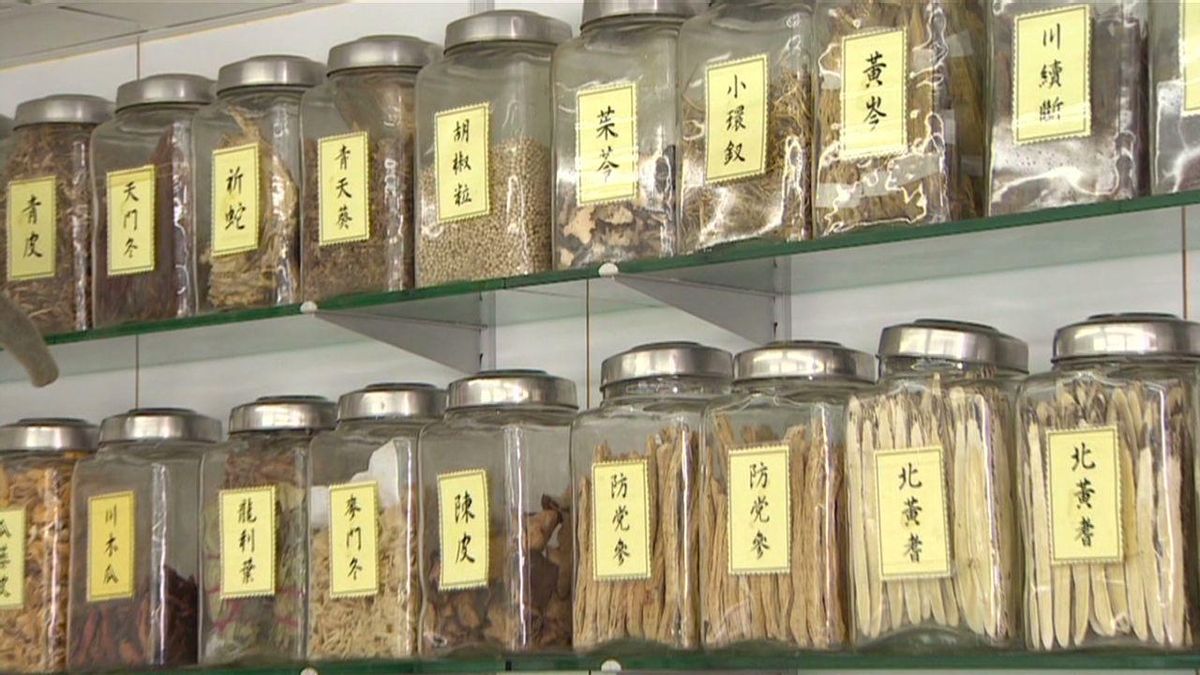- EARTH TO AILMENT
- Posts
- Earth To Ailment #43
Earth To Ailment #43


A viral video featuring Lynette Williams, who claims to have beaten stage 4 metastatic breast cancer using natural remedies, has sparked a heated online debate. In her testimony, Lynette shares how she turned to sour sop leaves, apricot seeds, and dietary changes after facing a bleak prognosis.
While her story has garnered support from many who advocate for holistic healing, it has also attracted skepticism regarding the scientific basis of such treatments. Health experts warn that unproven remedies could delay effective medical treatment and stress the importance of consulting healthcare professionals.
As the conversation unfolds, the video reflects a broader interest in alternative health approaches, highlighting both hope and caution in the world of cancer treatment.

A recent systematic review highlights the potential of Bushen Traditional Chinese Medicine as a promising treatment for polycystic ovary syndrome (PCOS), a condition affecting 5-10% of women of reproductive age. This study analyzed data from various animal trials and found that Bushen formulas may significantly improve key PCOS symptoms, such as reducing ovarian mass and testosterone levels and promoting weight loss.
Led by Professor Cui, the review emphasized the need for more extensive human trials to fully understand these herbal treatments' mechanisms and effectiveness. While the results are promising, challenges like study variability must be addressed before clinical application.
With growing interest in alternative therapies, Bushen offers exciting possibilities, combining the wisdom of traditional practices with modern scientific inquiry to potentially enhance the lives of women grappling with PCOS. Future research could bridge Eastern and Western medicine strategies to provide holistic care for this complex condition.
:max_bytes(150000):strip_icc()/Berberine-Natures-Ozempic_Final-1afca993e7454d18945b90516dd4b51c.jpg)
Berberine, often dubbed ‘Nature’s Ozempic,’ is attracting attention as a potential weight-loss supplement. Extracted from various plants, this natural compound claims to lower blood sugar and improve insulin sensitivity.
However, experts caution that berberine doesn't work like prescribed medications such as Ozempic, which directly aids in weight loss by regulating hormones and slowing gastric emptying. According to Lisa Kroon, PharmD, berberine activates an enzyme that helps with glucose metabolism, but its effects on weight loss are still underwhelming.
Studies suggest it may yield modest weight loss and lower blood sugar levels, yet it’s not a substitute for prescription drugs. Side effects might include gastrointestinal issues, and long-term safety remains unclear.
Before trying berberine, consultation with a healthcare provider is essential, especially for those with existing health conditions or medications. In short, while berberine shows promise, it’s not a magic solution for weight loss.

Boosting your sperm count naturally is easier than you might think! This engaging guide from Medical News Today offers 14 practical tips to enhance fertility. Start by adopting a healthier lifestyle: prioritize quality sleep, quit smoking, and steer clear of excessive alcohol and drugs.
A well-balanced diet rich in antioxidants, healthy fats, and vitamins—especially Vitamin D—can work wonders for your sperm health. Regular exercise not only helps maintain a healthy weight but also supports sperm production.
Also, minimize exposure to environmental toxins and the consumption of soy and estrogen-rich foods. Remember, if you suspect medications may be impacting your fertility, consult with a healthcare professional.
With a little commitment and these proven strategies, you can significantly increase your sperm count and pave the way for a healthier future.

The COVID-19 pandemic has sparked a profound shift in how we perceive and prioritize our health, as highlighted in a recent Pittsburgh Post-Gazette article. As the world adapted to new realities of lockdowns and social distancing, many individuals began reassessing their well-being, embracing holistic approaches that emphasize mental health alongside physical fitness.
The article explores how people have become more attuned to their bodies, prioritized self-care routines, and sought meaningful connections with others, even from afar. Additionally, the emergence of telehealth services and the popularity of wellness apps reflect a cultural transformation where personal health is no longer just an individual responsibility but a shared journey.
This newfound awareness encourages a comprehensive understanding of health that encompasses emotional resilience, mindfulness, and community support, ultimately leading to a more balanced and fulfilling lifestyle in an increasingly complex world.

Deciding between natural remedies and FDA-approved drugs for your health needs can be challenging. While many cultures have relied on traditional medicines like herbal treatments, scientific research backs the effectiveness of synthetic medications, especially for serious ailments.
Natural remedies may relieve mild symptoms—think honey for coughs or ginger for nausea—but caution is essential, as not every "natural" option is safe or effective.
FDA-regulated drugs undergo rigorous testing to ensure safety and efficacy.
However, some natural treatments can complement these medicines. It's vital to consult with a knowledgeable healthcare provider before mixing remedies, as some natural substances can interact harmful with prescriptions.
Ultimately, a balanced approach combining the best of both worlds—natural and synthetic—while relying on professional guidance can create a holistic path to wellness. Remember, what works for one person might not work for another, so explore options and seek personalized advice from your doctor.

Researchers at Washington University and Stanford University have made a groundbreaking discovery—a compound that mimics cannabis, offering pain relief without the unwanted side effects associated with opioids. This innovative molecule targets pain-reducing receptors outside the brain, effectively alleviating pain in mice while avoiding addiction and mood alterations.
In tests, the compound demonstrated consistent pain relief over nine days without developing tolerance, a common issue with traditional painkillers. With around 50 million people in the U.
S. grappling with chronic pain, this promising approach could transform pain management, providing a non-addictive alternative to opioids.
The team plans to further refine the compound for clinical trials, aiming to bring this potential solution to those in need.